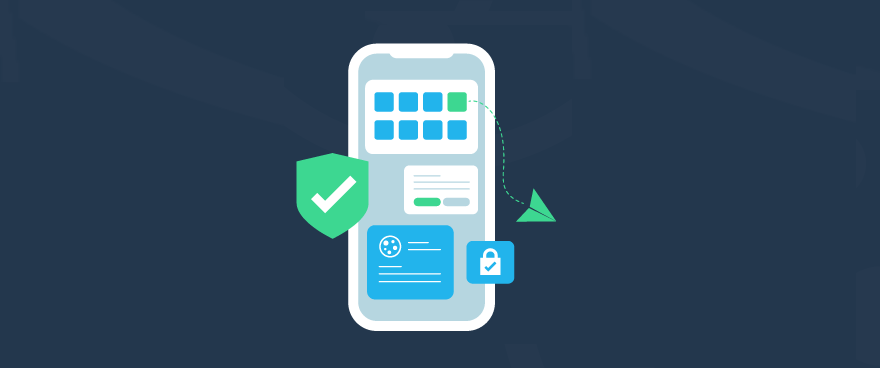In today’s digital landscape, app data collection has become a significant concern for users and regulators alike. Privacy regulations play a vital role in governing how apps collect, use, and protect user data. In this article, we will explore two prominent privacy regulations: the General Data Protection Regulation (GDPR) and the California Consumer Privacy Act (CCPA). We will delve into their implications for app developers and users, helping you understand your rights and how to navigate the landscape of app data collection in compliance with these regulations.
General Data Protection Regulation (GDPR)

- Overview of GDPR: The GDPR is a comprehensive privacy regulation enacted by the European Union (EU) to protect the personal data of EU citizens. It applies to any organization that collects or processes personal data of individuals within the EU, regardless of the organization’s location. Key points to understand about the GDPR include:
- Expanded Definition of Personal Data: The GDPR broadens the definition of personal data to include any information that can directly or indirectly identify an individual, such as names, email addresses, IP addresses, or even unique identifiers like device IDs.
- Lawful Basis for Data Processing: The GDPR establishes lawful bases for processing personal data, such as consent, contractual necessity, legal obligations, vital interests, public task, or legitimate interests. App developers must have a valid lawful basis for collecting and processing user data.
- User Rights: The GDPR grants users several rights, including the right to access their data, the right to rectify inaccurate data, the right to erasure (also known as the “right to be forgotten”), the right to data portability, and the right to object to certain types of data processing.
- Data Protection Impact Assessment (DPIA): Under the GDPR, organizations may be required to conduct a DPIA for high-risk data processing activities. A DPIA assesses the potential impact on individuals’ privacy and determines appropriate measures to mitigate risks.
- Implications for App Developers and Users: The GDPR has significant implications for both app developers and users. Here’s what you need to know:
- App Developers: Developers must ensure that their apps comply with the GDPR by implementing policies and practices that protect user data. This includes obtaining valid consent for data collection and processing, providing transparent privacy notices, and implementing appropriate security measures to safeguard user data.
- Users: The GDPR empowers users to have more control over their personal data. Users can exercise their rights by accessing, correcting, or deleting their data. They have the right to know how their data is used and to opt out of certain data processing activities. Users should review app privacy policies, exercise their rights, and report any violations to the relevant data protection authorities.
California Consumer Privacy Act (CCPA)

- Overview of CCPA: The CCPA is a privacy law enacted in California, United States, aimed at protecting the privacy rights of California residents. It grants users greater control over their personal information and imposes obligations on businesses that collect and process such data. Key aspects of the CCPA include:
- Expanded Definition of Personal Information: The CCPA defines personal information broadly, encompassing information that identifies, relates to, describes, or can be reasonably linked to an individual or household. It includes not only traditional identifiers but also browsing history, geolocation data, and inferences drawn from other personal information.
- User Rights: The CCPA grants several rights to California residents, including the right to know what personal information is collected and how it is used, the right to opt out of the sale of personal information, the right to request deletion of personal information, and the right to non-discrimination for exercising their privacy rights.
- Business Obligations: The CCPA imposes obligations on businesses subject to the law. This includes providing clear and conspicuous privacy notices, implementing processes to respond to user requests, and taking reasonable security measures to protect personal information.
- Scope and Applicability: The CCPA applies to businesses that meet certain criteria, such as having annual gross revenue above a specified threshold, handling a significant amount of personal information, or deriving a substantial portion of their revenue from selling personal information.
- Implications for App Developers and Users: The CCPA has implications for both app developers and users, with a particular focus on businesses operating in California. Consider the following:
- App Developers: Developers must ensure compliance with the CCPA if their app falls within its scope. This includes updating privacy policies to meet CCPA requirements, implementing mechanisms to honor user requests, such as opting out of the sale of personal information, and establishing procedures to handle user inquiries and data access requests.
- Users: California residents can exercise their rights under the CCPA to gain more control over their personal information. They should review app privacy policies, exercise opt-out options, and submit requests to businesses for accessing or deleting their personalinformation. It is essential for users to stay informed about their rights and take advantage of the protections provided by the CCPA.
Conclusion
In conclusion, understanding privacy regulations such as the GDPR and CCPA is crucial for both app developers and users. Developers must ensure compliance with these regulations by implementing appropriate policies, practices, and security measures to protect user data. Users, on the other hand, should be aware of their rights and take active steps to safeguard their personal information. By fostering a community dialogue on app security and privacy, we can collectively work towards a safer and more privacy-conscious digital ecosystem.
Remember, staying informed and being proactive are key to protecting your privacy. Regularly review app privacy policies, exercise your rights under applicable privacy regulations, and report any concerns or violations to the relevant authorities. By taking these steps, you can enhance your app security and privacy, ensuring a safer and more trustworthy digital experience.






